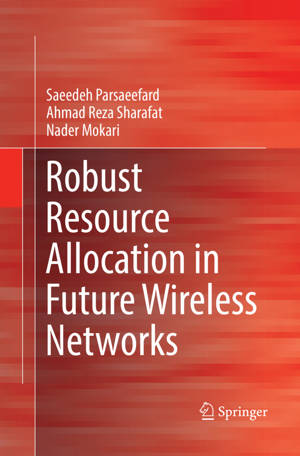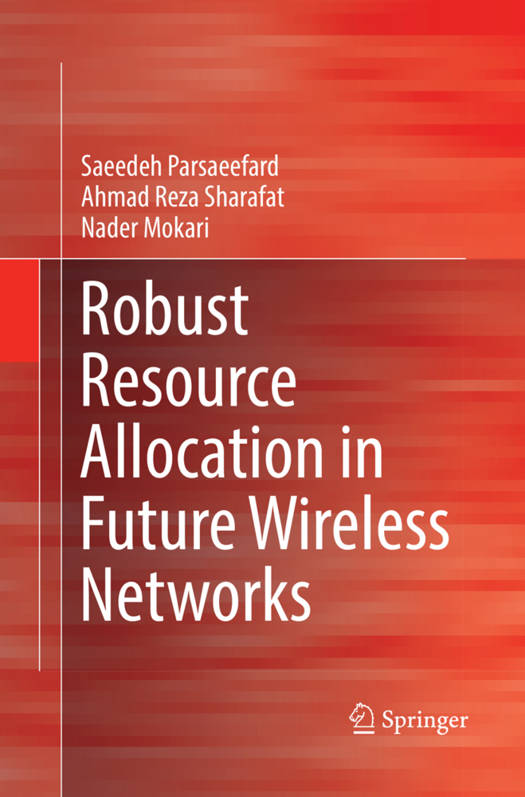
- Afhalen na 1 uur in een winkel met voorraad
- Gratis thuislevering in België vanaf € 30
- Ruim aanbod met 7 miljoen producten
- Afhalen na 1 uur in een winkel met voorraad
- Gratis thuislevering in België vanaf € 30
- Ruim aanbod met 7 miljoen producten
Zoeken
Robust Resource Allocation in Future Wireless Networks
Saeedeh Parsaeefard, Ahmad Reza Sharafat, Nader Mokari
Paperback | Engels
€ 147,95
+ 295 punten
Uitvoering
Omschrijving
This book presents state-of-the-art research on robust resource allocation in current and future wireless networks. The authors describe the nominal resource allocation problems in wireless networks and explain why introducing robustness in such networks is desirable. Then, depending on the objectives of the problem, namely maximizing the social utility or the per-user utility, cooperative or competitive approaches are explained and their corresponding robust problems are considered in detail. For each approach, the costs and benefits of robust schemes are discussed and the algorithms for reducing their costs and improving their benefits are presented. Considering the fact that such problems are inherently non-convex and intractable, a taxonomy of different relaxation techniques is presented, and applications of such techniques are shown via several examples throughout the book. Finally, theauthors argue that resource allocation continues to be an important issue in future wireless networks, and propose specific problems for future research.
Specificaties
Betrokkenen
- Auteur(s):
- Uitgeverij:
Inhoud
- Aantal bladzijden:
- 245
- Taal:
- Engels
Eigenschappen
- Productcode (EAN):
- 9783319843889
- Verschijningsdatum:
- 21/07/2018
- Uitvoering:
- Paperback
- Formaat:
- Trade paperback (VS)
- Afmetingen:
- 156 mm x 234 mm
- Gewicht:
- 367 g

Alleen bij Standaard Boekhandel
+ 295 punten op je klantenkaart van Standaard Boekhandel
Beoordelingen
We publiceren alleen reviews die voldoen aan de voorwaarden voor reviews. Bekijk onze voorwaarden voor reviews.











